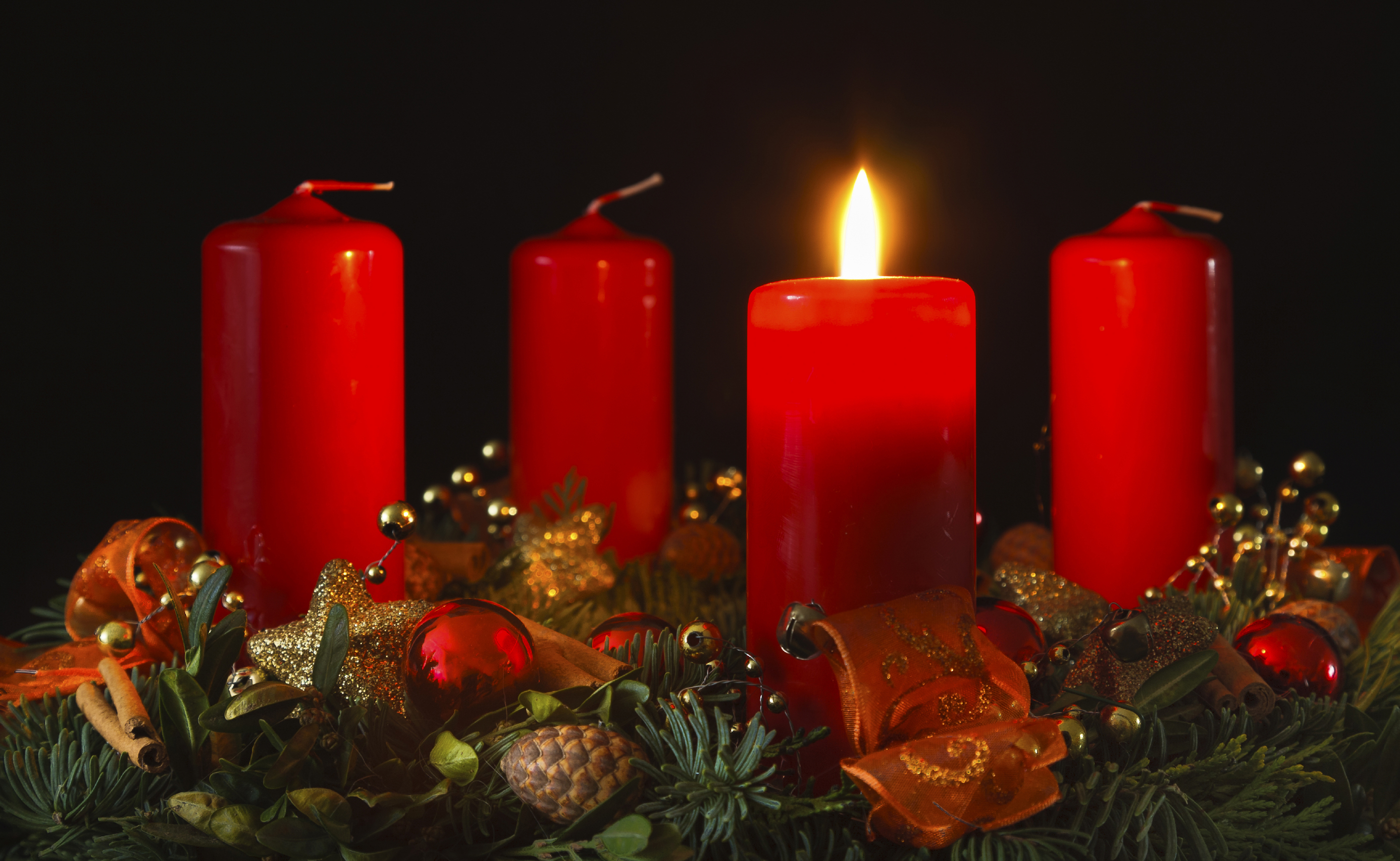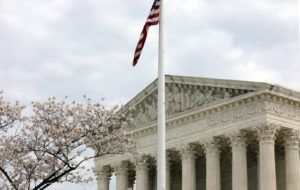
NASHVILLE (BP) — Late preaching professor Calvin Miller once quipped to Christianity Today that many Southern Baptist churches “probably could hardly spell Advent” in the early 1990s.
Not so anymore.
 LifeWay Christian Resources of the Southern Baptist Convention has published Advent devotional books and includes tips for observing Advent in at least two holiday magazines this year. North Carolina’s Biblical Recorder newsjournal commends Advent to its readers, offering them a list of Advent resources. And Southern Baptist congregations across America light Advent candles weekly — many of them purchased from LifeWay.
LifeWay Christian Resources of the Southern Baptist Convention has published Advent devotional books and includes tips for observing Advent in at least two holiday magazines this year. North Carolina’s Biblical Recorder newsjournal commends Advent to its readers, offering them a list of Advent resources. And Southern Baptist congregations across America light Advent candles weekly — many of them purchased from LifeWay.
So why the shift?
Church historian Stan Norman said Baptists have begun to see the usefulness of traditions once viewed as too liturgical or high church. Advent wreaths, calendars and readings “seem to provide a bit of structure in a tradition that has maybe gone too far without structure,” Norman, provost of Oklahoma Baptist University, told Baptist Press.
The focus on Christ inherent in Advent celebrations is needed “in a cultural context in which we are battered on every side to be diverted away from that,” Norman said.
Advent, derived from a Latin word meaning “coming,” refers to a four-week period of preparation in Western churches leading up to Christmas. For most believers who observe it, Advent is a time of reflecting on Jesus’ first coming and preparing for His second coming.
Advent origins
Advent became a recognized Christian festival in the sixth century, some 400 years after followers of Jesus began to celebrate Christmas, said Southern Baptist Theological Seminary professor Michael Haykin. He noted some evidence of fasting by believers in preparation for Christmas during the fourth century.
An Advent sermon preached by Pope Gregory the Great around A.D. 600 may be evidence Advent had gained official recognition by then. The festival was a staple of the Christian calendar by the High Middle Ages (1000-1300), Haykin, a professor of church history and biblical spirituality, told BP.
Change came with the Protestant Reformation, when there was “a trimming of the calendar by all of the Protestants” in an effort to bring church activities in line with the instructions of Scripture, Haykin said.
Anglicans and Lutherans maintained Advent. Puritans — British and American Christians who sought to purify the Church of England in the 1500s and 1600s — believed churches should eliminate all worship practices without clear biblical warrant, and they included Advent in that category. In fact, they eliminated all Christian celebrations except the Lord’s Day.
Early Baptists, with many of their roots in Puritanism, “would have shared that sort of attitude,” Haykin said.
Not until the late 1700s did Baptists’ aversion to Christmas start to shift, with English pastor John Ryland, for example, preaching a Christmas sermon. By the mid-1800s, Baptists began to celebrate Christmas more broadly, Haykin and Norman said.
Basil Manly Jr., one of Southern Seminary’s founding professors, wrote in an 1867 letter that “a custom has sprung up, since the [Civil] War began, of having a Christmas tree.” London pastor Charles Spurgeon said in an 1891 sermon that while “perhaps it is not right to have the birthday [of Christ] celebrated,” he would “say nothing, today, against festivities on that great birthday of Christ.”
Yet even as Christmas celebrations expanded among Baptists, Norman said, Advent remained unpopular, seen as a vestige of high church traditions, including Roman Catholicism. “Not until probably the middle of the 20th century did we see an openness to actual Advent being incorporated,” he said.
Among the early expressions of Advent’s blossoming was a 1965 Advent devotional book by R.L. Middleton published by the Baptist Sunday School Board, LifeWay’s precursor organization — though the book did not use the term Advent. That same year, the SBC Executive Committee defended the celebration of Christmas generally in its publication The Baptist Program.
The flowering of Advent
Today’s proliferation of Advent observance may be part of a “pushback” against the contemporary worship movement, Norman said, as believers seek increased “solemnity” and “sobriety.” Haykin said Advent helps contemporary believers set themselves apart from a world that is more “hostile to the Christian faith” than the world of Puritans and early Baptists.
Allan Blume was one Baptist pastor to incorporate Advent into his Christmas celebration for the reason articulated by Haykin. In 35 years of pastoral ministry, Blume found Advent was “a time to keep the focus on Jesus daily in the middle of a season that keeps drawing our attention to material items.”
Now editor of the Biblical Recorder, Blume wrote in an editorial, “I had heard of Advent but always brushed it aside as something only liturgical churches did. I learned it is a very popular tradition in Germany, the homeland of my family name.
“I began a multi-year investigation into the history of the Advent tradition,” Blume wrote. “… The more I studied, the more I wondered why evangelicals were missing out on all of the rich meaning and pure joy of Advent celebrations.”
For more than three decades now, Blume has celebrated Advent with daily devotionals and candle lighting in his family and weekly lighting of candles in churches he has pastored. In addition to enriching the Christmas celebration, Advent observance has created teaching moments and prompted Blume to pray about and consider more deeply his annual gift to the Lottie Moon Christmas Offering for International Missions.
Pastor Rhett Wilson of The Spring Church, a Southern Baptist congregation in Laurens, S.C., recounted a similar experience.
“The Advent season can be a great time for families to celebrate Jesus Christ afresh,” Wilson wrote in LifeWay’s HomeLife. “Parents are wise to create opportunities for children to focus on Jesus amid all the holiday rush.”
Norman is another Advent observer — both in his family and at churches he has served as interim pastor. Southern Baptists, he believes, are hungry for the Christ-centeredness and structure of Advent.
Based on response to Norman’s introduction of Advent in various congregations, he said, “you would have thought I’d invented sliced bread.”














